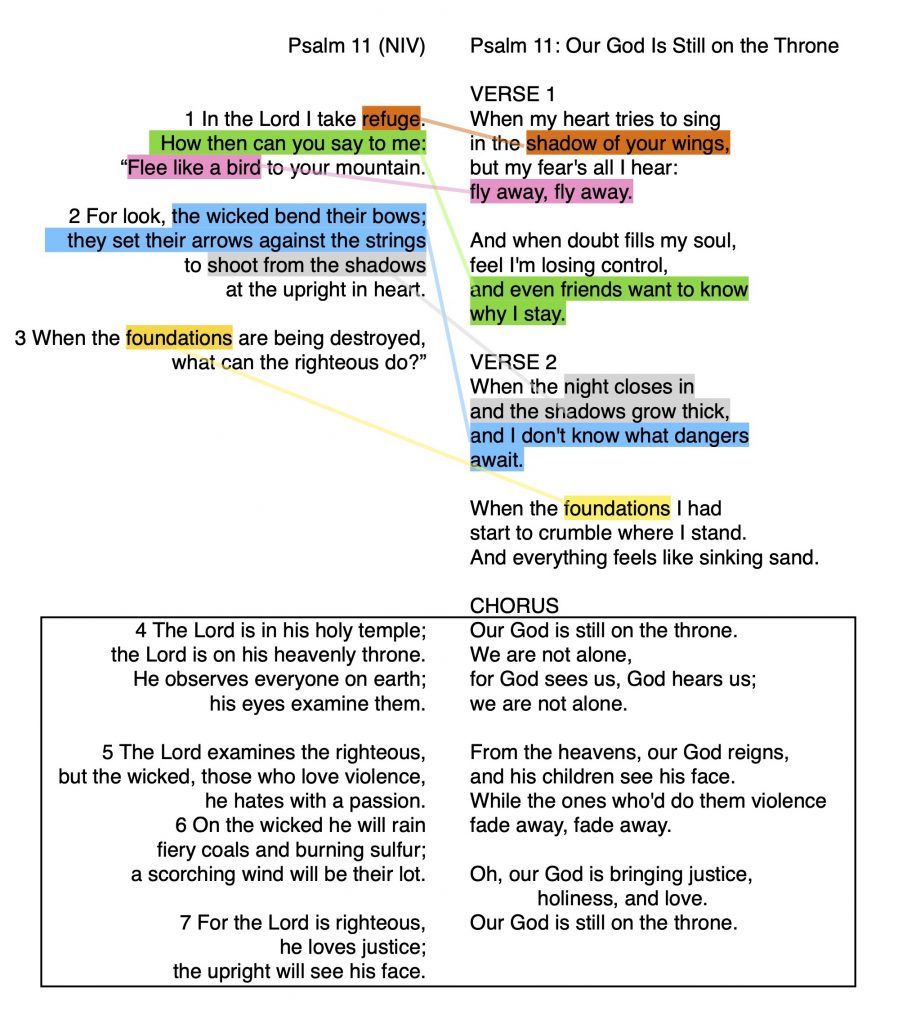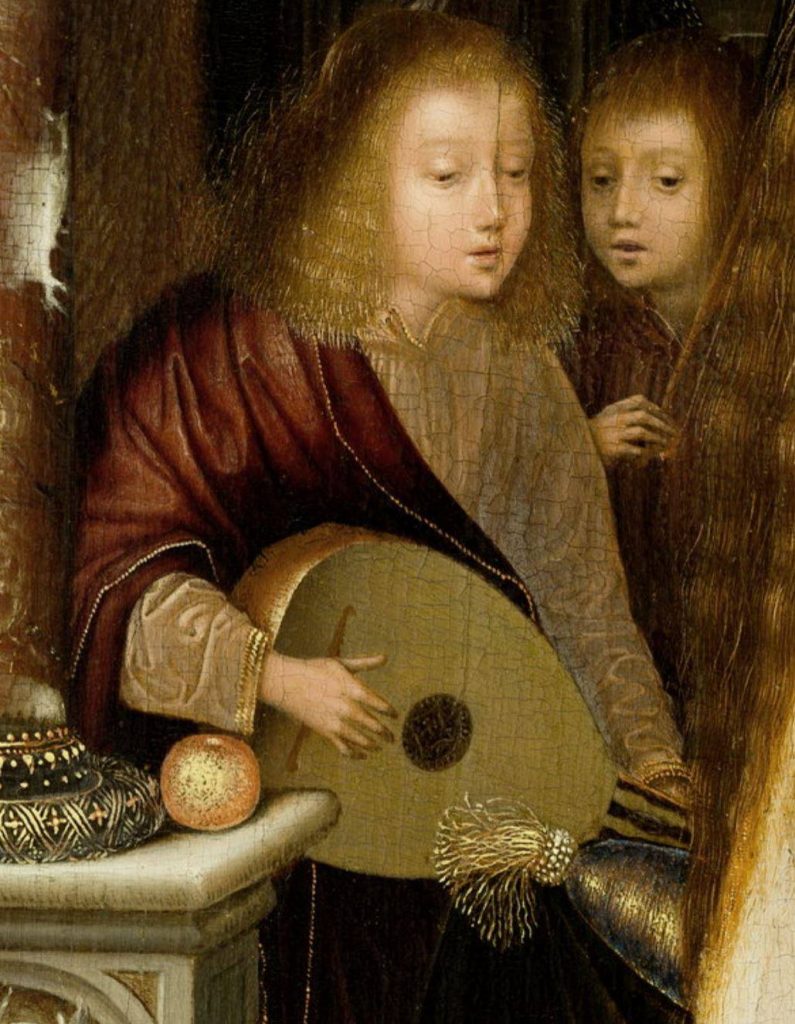Update: This song is now available at gregscheer.com.
There are many, many ways to set the Psalms to music. Some of the most popular choices include metrical, responsorial, and verbatim Psalm settings. Each approach has its merits and I try to use a variety of approaches from Psalm to Psalm and sometimes even mix and match within a Psalm. What I really want is an approach that honors the original Psalm text–including its form–while making the song understandable to the common churchgoer.

When I began working on Psalm 11, I quickly ruled out a word-for-word lyrical setting. Some of the Psalm’s meanings are obscure (scholars can’t agree who is suggesting that the Psalmist flee like a bird, for example), some of it is archaic (arrows are not high on my list of fears), and some is vitriol that probably shouldn’t be included in group singing (“the wicked…he hates with a passion; fiery coals, burning sulfur, and scorching wind will be their lot”).
The Psalm’s primary message seems to be that there are a lot of scary things out there; even some of what you thought was a firm foundation is no longer reliable, but God is still in control. I decided to use verse 4 “The Lord is in his holy temple” as the primary chorus image: “Our God is still on the throne.” From there I fleshed out the verses using as many of the images in the original Psalm as I could. I’ve included a side-by-side comparison below so you can see how the original Psalm was transformed into a song.

VERSE 1
When my heart tries to sing
in the shadow of your wings,
but my fear’s all I hear:
fly away, fly away.
And when doubt fills my soul,
feel I’m losing control,
and even friends want to know
why I stay.
CHORUS
Our God is still on the throne.
We are not alone,
for God sees us, God hears us;
we are not alone.
From the heavens, our God reigns,
and his children see his face.
While the ones who’d do them violence
fade away, fade away.
Oh, our God is bringing justice, holiness, and love.
Our God is still on the throne.
VERSE 2
When the night closes in
and the shadows grow thick,
and I don’t know what dangers
await.
When the foundations I had
start to crumble where I stand.
And everything feels like sinking sand.









